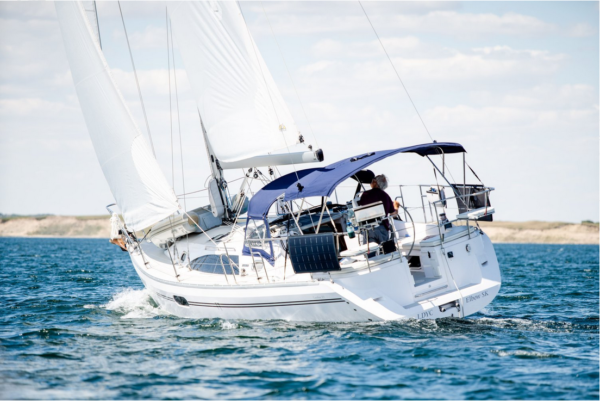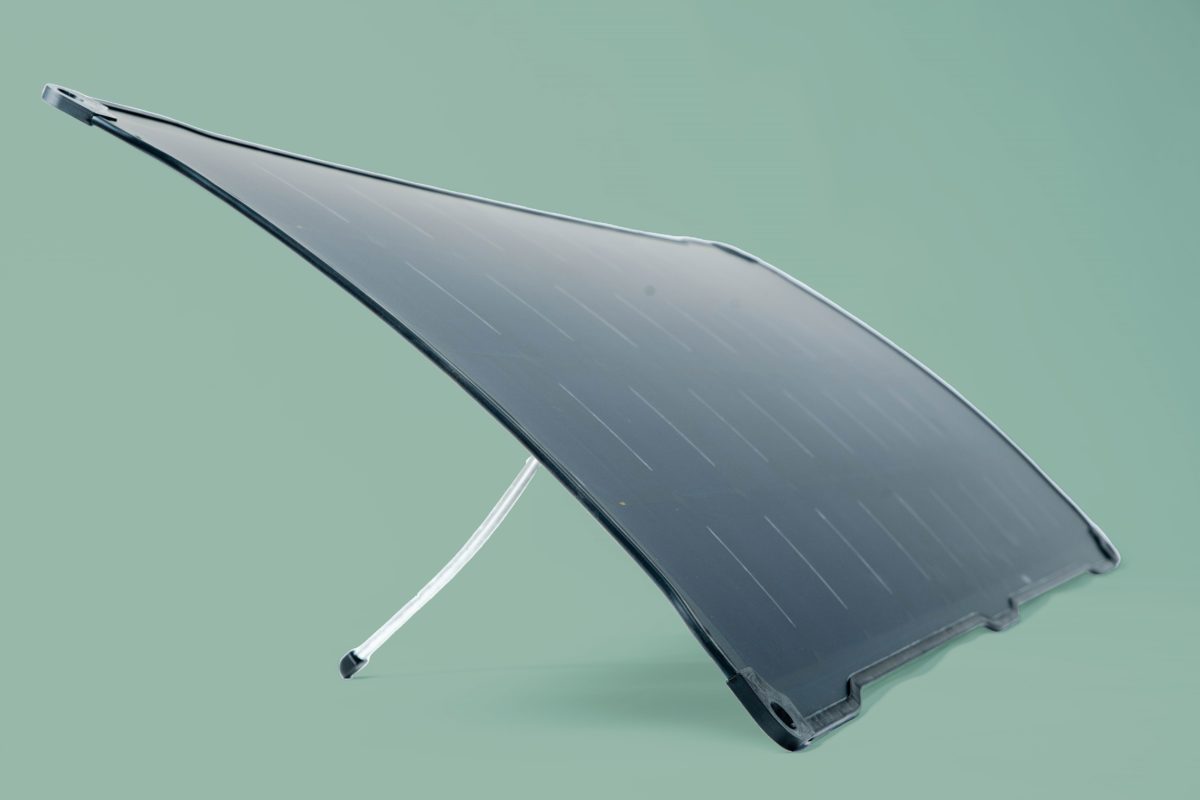Lightleaf has developed a new carbon fiber 110 W PV module for boat applications.
“Our latest product is aimed at the marine market, targeting sail and power boats with limited space where weight, functionality, and looks are important,” a company spokesperson told pv magazine. “We've designed a panel, the seaLeaf, with integrated hardware, but also have panels with interchangeable mounting kits designed to withstand the marine environment.”
The Canadian solar manufacturer said the seaLeaf has a rigid carbon-fiber foam foundation instead of glass. It measures 1,073 mm x 575 mm, is 9 mm thick, and weighs 2.5 kg. The curved solar panel includes two quick-release clamps installed 50 cm apart. These can purportedly attach to any one-inch rail and rotate 180 degrees to track the sun.
The new module has an open circuit voltage of 22.9 V, and a short circuit current of 6.35 A. It uses 32 SunPower Maxeon GIII Premium ME3 monocrystalline solar cells with 25.1% efficiency. The junction box is sealed and potted, uses two Schottky bypass diodes, and has IP67 protection. The device includes a 3-meter marine grade 14 AWG round cable with a plain end for simple bulkhead gland installation.
“The majority of our supply chain is North American sourced, and our panels are entirely designed and assembled in Saskatoon, Saskatchewan, [Canada]” said the Lightleaf spokesperson.
The seaLeaf costs $650 and comes with a three-year workmanship, and five-year power output warranty. Leightleaf has previously developed carbon fiber solar panels for the RV market, but it has mainly targeted small trailers with limited space.
“The nature of the panels allows them to be mounted while in transport and removed/deployed when parked,” said the spokesperson.

Image: Lightleaf
This content is protected by copyright and may not be reused. If you want to cooperate with us and would like to reuse some of our content, please contact: editors@pv-magazine.com.



Nothing about if/how they plan to mitigate output reductions from overheating cells. Foam generally a bad base for a PV panel. Maybe that explains the short warranty period ?
Great efficiency, but why such a small warranty? Especially for performance.